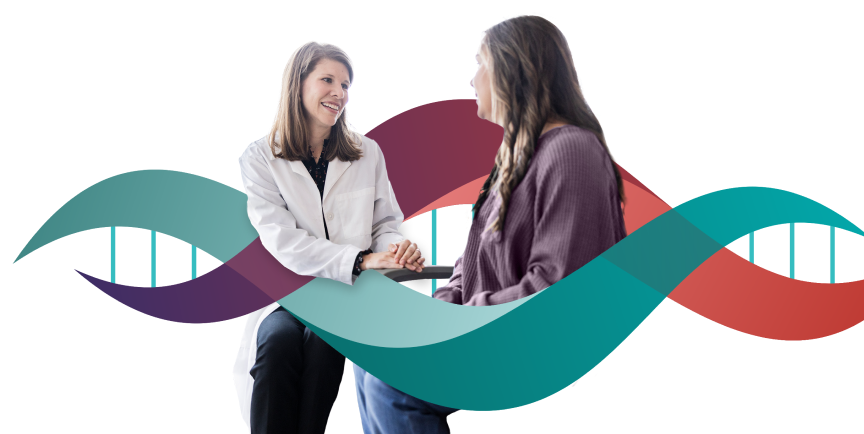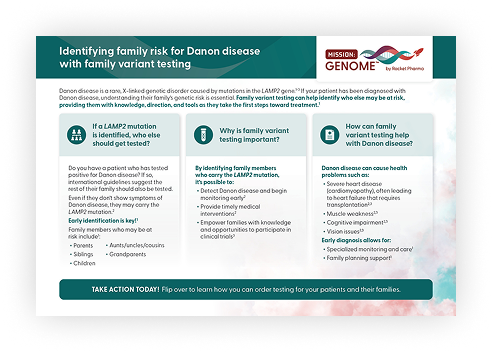Females who carry potentially disease-causing mutations on one of their two X chromosomes have a 50% chance of passing that gene onto their children.1
Family Genetic Testing

After an individual receives a positive result for a genetic disorder, families may understandably have numerous questions. A genetic counselor may be able to provide them with answers and help guide them through their disease management options.
Additionally, genetic testing for first-degree relatives of the affected person, referred to as cascade or family testing, is recommended.1,2 Conducting family testing can help identify other family members who may also be affected, as well as those who are at risk of developing or passing along the condition.1
X-linked inheritance pattern of a LAMP2 mutation1
This representation of a family tree shows three generations affected by Danon disease, which is inherited in an X-linked dominant pattern.1 Red symbols represent family members with the disease, while white symbols represent those without it. The individual indicated by the arrow is the first person identified with the LAMP2 mutation in this family. In this representation, the grandmother (indicated by an asterisk) has passed away.1
Family testing of first-degree relatives can help with family-planning decisions. Individuals who do not carry the variant that causes the disease may not require further clinical monitoring for the disease that has been identified in their family. Those who do carry the variant can consult with their clinicians about screening and future management.2
Mission: Genome provides no-charge* genetic counseling and testing for relatives of individuals with a positive genetic test for Danon disease, regardless of when that diagnosis was made.
*For eligible patients and their families. Eligibility requirements can be found on testing providers' web pages.References: 1. Hong KN, Eshraghian EA, Arad M, et al. International consensus on differential diagnosis and management of patients with Danon disease: JACC state-of-the art review. J Am Coll Cardiol. 2023;82(16):1628-1647. 2. Ommen SR, Mital S, Burke MA, et al. 2020 AHA/ACC guideline for the diagnosis and treatment of patients with hypertrophic cardiomyopathy: a report of the American College of Cardiology/American Heart Association joint committee on clinical practice guidelines. Circulation. 2020;142(25):e558-e631.
